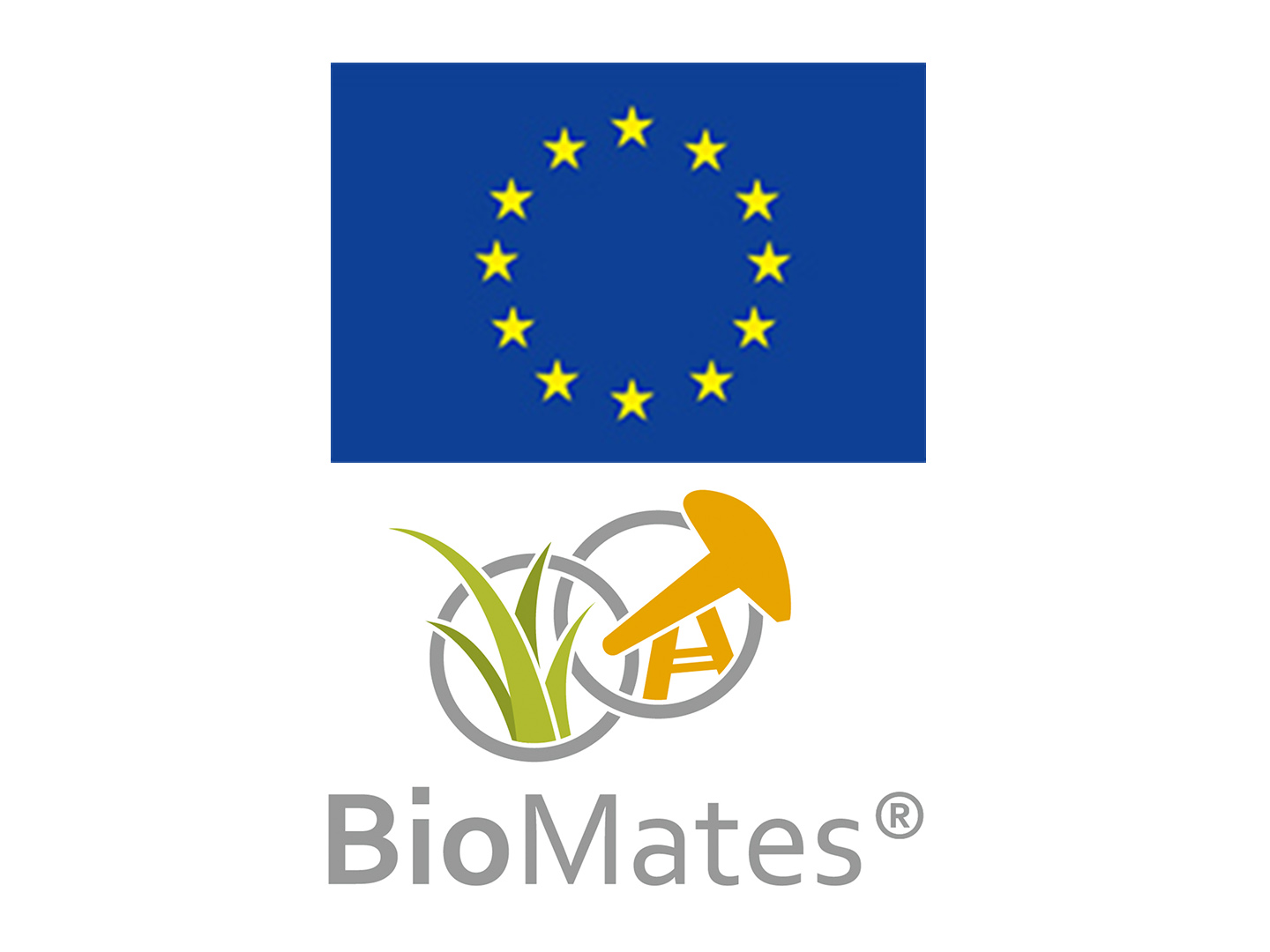First results are available
Biofuels: EU project BioMates® picks up the pace
BioMates® , a project funded by European Union (EU), enters the next round: Experts from the eight-partner project have developed a pilot plant recently, which is able to process in trial mode up to five kilograms of straw and non-food biomass (Miscanthus) and turn it into a new-generation bio-oil. In parallel, the international research team has identified the ideal refinery entry points for co-processing of such oil within conventional refineries. After its start in 2016, the project now is gradually moving closer to its goal of production of fuels using lignocellulosic biomass on a demonstration scale in the future. Fraunhofer UMSICHT carries the first and important processing of the bio-oil.
BioMates® stands for “Bio-based intermediates“, dedicated for being used in conventional refineries. The project is funded by the European Framework Program for Research and Innovation Horizon 2020 and coordinated by the Fraunhofer Institute for Environmental, Safety and Energy Technology UMSICHT in Oberhausen. Intensive research and the close collaboration of the BioMates® team are the foundation of the project's success. The specific system descriptions for sustainability assessment comprising all major life cycle stages along the value chain have been developed and discussed during a project workshop in Heidelberg.
This is important in the medium term to produce intermediates from wood or woody residues and agricultural products such as straw and grasses. The intermediates should have reliable material properties and be suitable for the highly sensitive oil refinery processes. Ultimately, such renewable feedstock for conventional oil refineries could produce hybrid fuels with up to 30 percent share of a bio-fraction, which would help to significantly reduce fossil CO2 emissions compared to comparable conventional fuels.
Processing of bio-fuels
The trick: fuels with a biogenic content are produced today almost exclusively by mixing (blending) fuels from conventional refineries with ready-made biofuels at the end of the fuel production process. The approach of BioMates® is very different. First, the biomass is converted into a so-called “bio-oil“. The solid feedstock is pressed against a rotating heat transfer medium at high temperature and thereby liquefies in less than a second.
Subsequently, the bio-oil can be processed by means of so-called mild hydrogenation into defined intermediates (BioMates®), which can be fed as intermediates in the refinery. This ensures stable material properties of the bio-oil, which are important for feeding into the highly sensitive refinery processes. Such parameters as the acid number, oxygen or sulphur content, comply with the specified values at all times despite fluctuating raw material properties.
Operation at pilot scale
The practical suitability of the technology will be demonstrated in pilot plants in a realistic environment, among others at project partners Fraunhofer UMSICHT in Oberhausen and at CERTH in Thessaloniki. HyET from Arnhem contributes the unit for electrochemical hydrogen compression, and Ranido from Prague, support by University of Chemistry and Technology Prague, develops the catalysts. IFEU from Heidelberg and Imperial College, London, jointly contribute a consistent sustainability assessment. As a refinery operator, BP carries out the analysis and economic evaluation. Finally, the manufactured “BioMates“ are to be tested in practice in a Greek pilot refinery.
At its Oberhausen site, Fraunhofer UMSICHT converts straw and miscanthus to the primary intermediate, the bio-oil. While Chinese silver grass (Miscanthus sinensis) decorates the campus, its high-yield relative, the giant miscanthus (Miscanthus × giganteus), is processed in a so-called Ablative Fast Pyrolysis plant. Being rapidly heated up to 550 °C, it mostly converts into energy-rich vapour that is instantly cooled down in multiple stages. The resulting bio-oil already features ideal properties for being further processed by the project partners in Prague and Thessaloniki.
Project partners:
• Fraunhofer Institute for Environmental, Safety, and Energy Technology UMSICHT, Germany (Project Coordination)
• Centre for Research & Technology Hellas / CERTH - Chemical Process & Energy Resources Institute / CPERI, Greece
• University of Chemistry and Technology Prague, Czech Republic
• Imperial College London, United Kingdom
• ifeu - Institut für Energie- und Umweltforschung Heidelberg GmbH , Germany
• Hydrogen Efficiency Technologies (HyET) B.V., Netherlands
• RANIDO, S.R.O., Czech Republic
• BP Europa SE, Germany
This project has received funding from the European Union’s Horizon 2020 research and innovation programme under the grant agreement No 727463. This press release reflects only the authors’ view; the European Commission and its responsible executive agency INEA are not responsible for any use that may be made of the information it contains.
Last modified:
 Fraunhofer Institute for Environmental, Safety and Energy Technology UMSICHT
Fraunhofer Institute for Environmental, Safety and Energy Technology UMSICHT